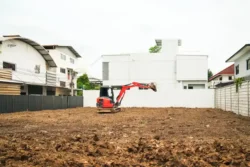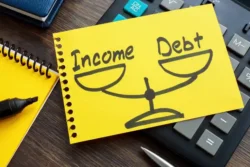5 questions to ask before you invest in commercial property
Published
July 16, 2018
Published
July 16, 2018

Investing in a commercial property can require making very different considerations to investing in residential property. When putting your money into commercial real estate, financing is more complex, lease terms are generally much longer, and attracting and retaining the right tenant to suit the property is crucial.
Simply put, it’s easy to get a commercial property investment wrong if you don’t have extensive experience in the sector.
Here are five questions to ask before you invest your money into an office property, a retail property, an industrial property warehouse, or any other kind of commercial property.
1. What is the land value?
Forget the building value; what is the underlying land worth?
There’s a common misbelief that a property generally goes up in value. It is not that simple. The building on – and improvements to – a property generally goes down in value once completed. It’s the land which usually boosts a property’s worth.
It’s a bit like buying a new car – it depreciates as soon as you drive it out of the lot. Similarly, once construction is completed on a property, deterioration and maintenance requirements will impact the building value. Eventually, it will require replacement.
The majority of value is retained in the land. This can be most obvious in areas that are seeing gentrification. For example, parts of Melbourne that were once industrial areas close to the city are now full of apartments, due to the rise in land value. These properties lent themselves to redevelopment to capitalise on the higher value of the land.
When considering whether to buy a commercial property, if there’s no significant value in the land, reconsider whether or not to proceed.
2. Is the commercial property leased or is it vacant?
A commercial lease is effectively an agreement for secure income over a specified time period (and lease terms in commercial property can be up to five or ten years, or even longer). This is why the value of a commercial property is heavily linked to the length and the derived income of its lease.
It is common for tenants to pay for the costs of owning and operating the property in addition to rent in a commercial property lease. Care and attention needs to be paid to the lease agreement to confirm how much of the property taxes and costs are recoverable from the tenant.
And finally, a crucial characteristic to question is the strength of the tenant. A large national or multinational brand is highly desirable. You want a recognised, profitable business, which appears unlikely to go bust and – once established in a location – is unlikely to relocate.
3. Is this space specialised?
It is common for commercial property (particularly industrial property) to have features for special use, which are in high demand by certain businesses. A large gantry crane is not a typical need for warehousing or distribution, but is essential for most manufacturing uses.
These factors will affect your pool of potential tenants. So it is important to understand how narrow the bandwidth of potential occupiers is, as this is a key driver of tenant and leasing demand.
4. Is this space in high supply?
Find out if there is equivalent space available in the same area or in other comparable areas. Look at your competitor properties. How many other vacancies are out there?
It’s not enough to only know whether your property is a rarity or one in a saturated market. You also have to know how to interpret that data. If there are 17 coffee shops on a local strip, maybe it means you need to own a café on that strip. Or maybe it means you shouldn’t be on that strip. You need to know the difference.
5. How are you going to finance it?
Will the purchase be made up of mostly bank finance? Will it be purchased through a Self-Managed Super Fund, or even in an unlisted property trust?
It’s important to get the financing around commercial property investment correct. Large dollar sums are usually involved, and your financial institution is going to want to know you have the expertise, sophistication and financial literacy to not just purchase the property, but to manage the investment.
Bank finance offers a potent way of enhancing the returns on a commercial property investment. However, this must be used and structured with care.
How to get commercial property investment right
Investing in commercial property can be complex. And there are many questions inexperienced investors my struggle to answer while on their pathway as investors.
One popular alternative is to invest with a commercial property syndicate, allowing you to leverage their track record and expertise for your own prosperity.
To find out more about investing alongside Properties & Pathways, get in touch with us. We handpick our properties to ensure growth and high-yielding returns. The strategy works. Our portfolio size has grown by an average 82% year on year.






